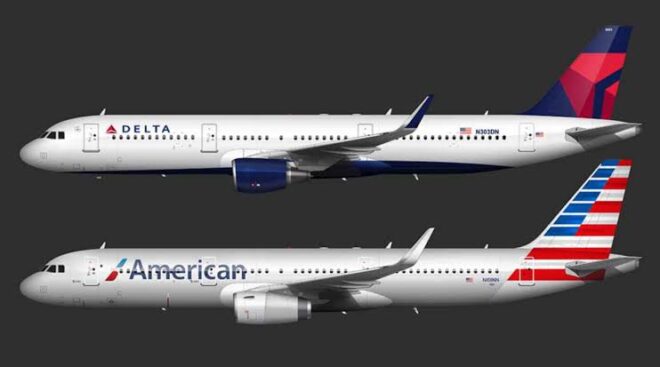
The idea of a merger between American Airlines and Delta Air Lines is one that could significantly alter the landscape of the U.S. airline industry. If such a merger were to happen, it would create one of the largest airlines in the world, with vast resources, an extensive network, and potentially, unparalleled market dominance. However, the path to such a merger is fraught with considerable regulatory hurdles that could make the deal difficult, if not impossible, to achieve.
One of the primary concerns surrounding a potential merger between these two airline giants is the issue of market dominance. Together, American Airlines and Delta control a substantial share of the U.S. domestic market, with major hubs in cities like Atlanta, Dallas-Fort Worth, Miami, and New York. A merger would likely reduce competition, leading to fewer choices for consumers and potentially higher prices. This would undoubtedly attract the scrutiny of regulatory bodies, such as the U.S. Department of Justice (DOJ) and the Federal Trade Commission (FTC), whose mandate includes preventing anti-competitive practices.
In recent years, both the DOJ and FTC have shown a willingness to block mergers that they believe could harm consumers by reducing competition. For instance, the DOJ successfully challenged the merger between AT&T and Time Warner, arguing that it would harm consumers. A similar argument could be made in the case of an American Airlines-Delta merger, where the combined entity could have too much power, leading to higher fares and reduced service quality.
U.S. antitrust laws are designed to prevent monopolistic practices and ensure a competitive market environment. The Sherman Act, Clayton Act, and other antitrust laws would be central to any regulatory review of a potential American Airlines-Delta merger. Regulators would likely examine whether the merger would create a monopoly or significantly reduce competition in the airline industry.
A key issue would be the potential overlap in routes and services. Both airlines operate extensive networks in the United States and internationally. A merger could lead to the elimination of overlapping routes, reducing competition on those routes and giving the merged entity significant control over key markets. This could result in higher prices for consumers and less incentive for the airline to improve service quality.
Moreover, regulators would likely consider the impact of the merger on smaller airlines. A combined American Airlines-Delta entity could leverage its size and resources to squeeze out smaller competitors, further reducing competition. This could lead to a less competitive market overall, with consumers bearing the brunt of the negative consequences.
In addition to U.S. regulatory scrutiny, an American Airlines-Delta merger would also face examination from international regulators. Both airlines operate extensive international networks, and a merger would likely be subject to review by competition authorities in other countries where they operate. The European Union, for example, has strict competition laws and has previously blocked or imposed significant conditions on mergers involving large multinational companies.
International regulators would likely consider the impact of the merger on competition in their own markets. For example, if the merger were to reduce competition on transatlantic routes, the EU could block the deal or impose conditions to preserve competition. Similarly, regulators in other regions, such as Asia and Latin America, could also review the merger to ensure it does not harm competition in their markets.
Despite the significant regulatory hurdles, there could be potential benefits to a merger between American Airlines and Delta. A combined entity could achieve economies of scale, reducing costs and potentially passing on some of those savings to consumers. The merged airline could also offer a more extensive network, providing consumers with more travel options and better connectivity.
Additionally, the merger could strengthen the airline’s ability to compete with other global giants, such as Emirates, Lufthansa, and British Airways. By combining their resources, American Airlines and Delta could better compete on international routes, particularly in key markets such as Europe, Asia, and Latin America.
While a merger between American Airlines and Delta could create a global powerhouse in the airline industry, the road to such a deal is likely to be long and complicated. Regulatory scrutiny, both in the United States and internationally, would be intense, with significant concerns about market dominance and competition. The potential benefits of the merger, such as economies of scale and improved service offerings, would need to be weighed against the risks of reduced competition and higher prices for consumers.
Ehether or not such a merger would be allowed to proceed would depend on the ability of the airlines to address these regulatory concerns and demonstrate that the benefits of the merger outweigh the potential harm to consumers and the competitive landscape of the airline industry.